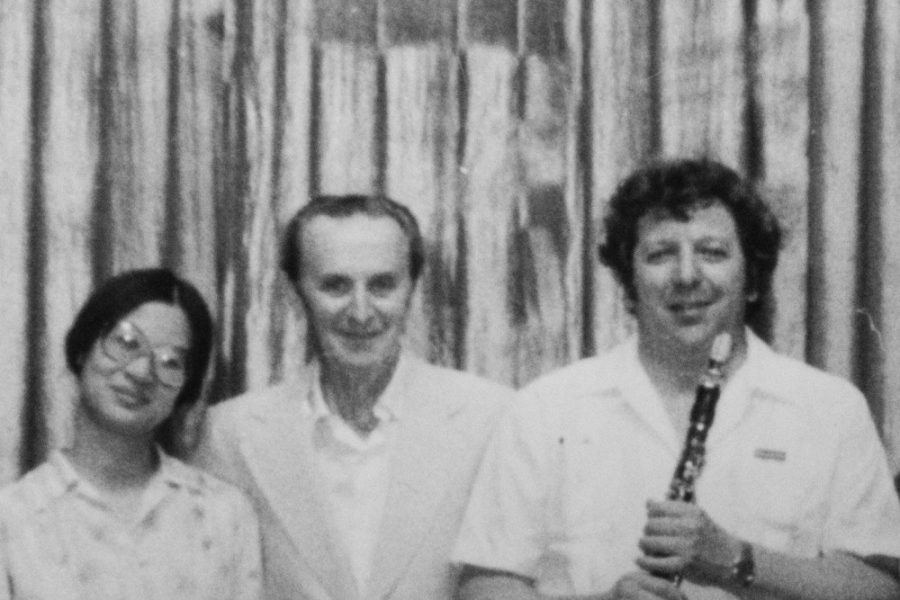When pianist and School of Music professor Paula Fan traveled to China to teach music to children, she met an elderly gentleman named Herbert Zipper. Zipper’s unwavering positive attitude and ever-present smile left a lasting impression on Fan. She didn’t know it at the time, but Zipper was a Holocaust survivor.
Decades later, and after Zipper’s death in 1997, Fan is still asking herself how a man like Zipper remained so optimistic after enduring such tragedy. It’s questions like these that Fan and her associates at the Confluencenter Center for Creative Inquiry hope to answer at their “Creative Collaborations” presentation this Saturday at 11 a.m.
As part of an ongoing series of presentations that mix and match different disciplines across the UA, “Creative Collaborations” examines various topics of interest to Fan and her scholastic partners. This month, Fan explores the experience of the Holocaust through the perspective of children in a presentation called “The Choiceless Choice.”
“The question to me is, ‘Did the children see things differently than the adults?’” Fan said.
Consisting of classical music, poetry and historical lectures, the presentation will take place in the lower level of the UofA Bookstore.
Fan will begin by playing a cycle of songs on a 1901 Steinway piano. The songs are lyrical adaptations of testimonies from actual children of the Holocaust. Sections from “The Diary of Anne Frank” and “I Never Saw Another Butterfly” will serve as the inspiration for Fan’s repertoire.
Fan said the idea for the presentation partly stems from her memories of Zipper, who was an Austrian musician sent to the Dachau concentration camp in 1938. While taken prisoner, Zipper secretly put together an orchestra of musicians to play concerts in an abandoned latrine. He and his fellow prisoners would craft instruments together from pieces of wood and scrap metal.
“Herbert’s sustaining lifeline was his commitment to music,” Fan said. Zipper’s story of survival would later be profiled in the Oscar-nominated documentary “Never Give Up.”
As part of her research for the presentation, Fan met with a group of Holocaust survivors at the Jewish Family and Children’s Services of Southern Arizona to see if any of them chose music or art as coping mechanisms in their fight for survival in the way as Zipper had.
“Nobody thought about music,” one of the survivors said. “We didn’t have the choice.”
Fan says that she noticed the survivors were curious about her professional pianist career.
While these men and women spoke of losing their childhoods to the Holocaust, none seemed to have lost their appreciation for beautiful things, Fan said. Like her friend Zipper, Fan observes, Holocaust survivors tend to make a conscious choice to embrace life.
Susan Crane of the department of history will join Fan on Saturday in a discussion about the choices a person makes in a suppressing environment, such as the Holocaust. Crane specializes in the historical consciousness of modern Germany and teaches classes focused on how the Holocaust is remembered by different people.
“These presentations enhance the collaborative atmosphere at the UA,” said Yvonne Ervin, the director of development at the Confluencenter for Creative Inquiry. Ervin has overseen Fan as she has conducted these collaborations for the past year.
The atmosphere of these “Creative Collaborations” is meant to invoke the casualness of a saloon-type setting, Ervin said. Spectators are seated less than 5 feet away from Fan as she plays piano, and so the expected crowd of about 75-80 people will undoubtedly feel intimate with the material.
The event is free and open to the public. A short post-show discussion hosted by Fan and Crane will take place over a brown bag lunch with visitors from the Osher Lifelong Learning Institute.
“We’re trying to open up the university to the Tucson community,” Ervin said. “We want to encourage people to come on campus.”









